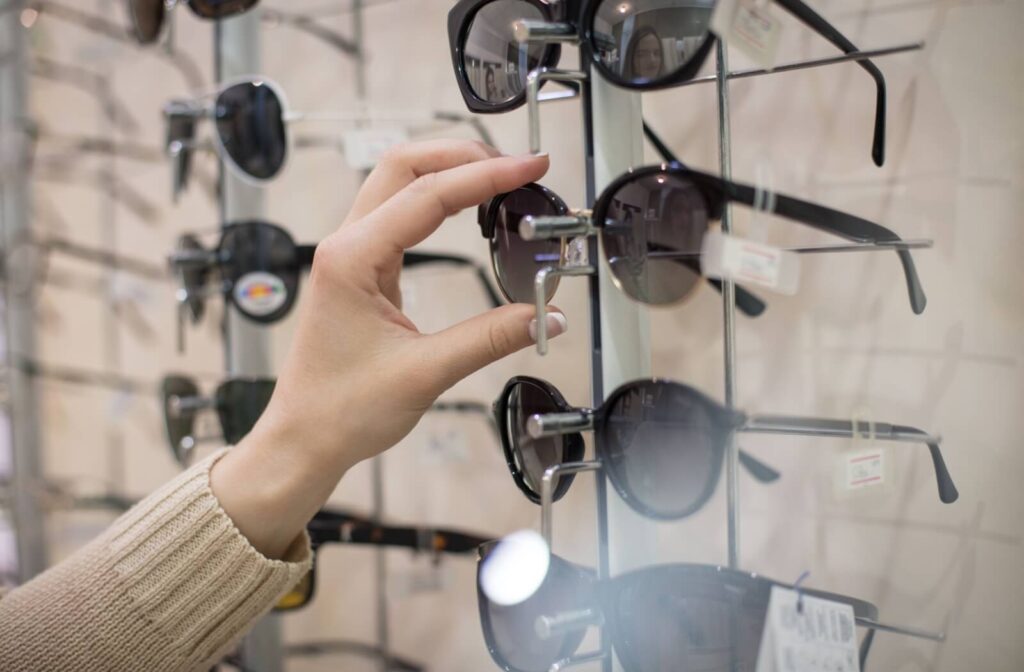When it comes to choosing the right sunglasses, many wonder: Are polarized sunglasses truly better for your eyes?
The straightforward answer is that polarized sunglasses offer specific benefits like reducing glare, which can enhance comfort and vision in certain conditions—but they aren’t automatically better than other types of sunglasses.
What Are Polarized Sunglasses?
Polarized sunglasses are designed with a special filter that blocks horizontal light waves, which are primarily responsible for glare. Glare typically occurs when sunlight reflects off flat surfaces such as water, roads, snow, or car hoods. This reflected light can be intense and uncomfortable, sometimes even hazardous, especially when you’re driving or playing sports.
Polarized lenses selectively filter out this harsh glare, allowing only vertical light to enter your eyes. This makes for a clearer, sharper, and more comfortable visual experience in bright environments.
Do Eye Doctors Recommend Polarized Sunglasses?
Many eye care professionals do recommend polarized sunglasses—particularly for people who spend a lot of time outdoors in conditions where glare is an issue. Drivers, boaters, cyclists, and anglers often benefit greatly from the glare reduction that polarized lenses provide.
Polarized lenses can help reduce eye strain and improve contrast, which makes outdoor activities safer and more enjoyable. However, it’s important to note that polarization itself doesn’t guarantee UV protection, which is crucial for protecting your eyes from harmful ultraviolet rays. You should always ensure that your polarized sunglasses also provide 100% UV protection.
Polarized vs. UV Protection: Which is Better?
This question often causes confusion. UV protection and polarization serve two different purposes. UV protection blocks harmful ultraviolet rays from the sun that can contribute to cataracts, macular degeneration, and other eye problems over time. Polarization, on the other hand, reduces glare but does not inherently protect against UV rays.
In other words, sunglasses with UV protection but no polarization will shield your eyes from damaging rays, but won’t reduce glare as effectively. Conversely, polarized sunglasses without UV protection will reduce glare but still leave your eyes vulnerable to UV damage. If you do opt for polarized sunglasses, make sure that they offer UV protection.
What Are the Disadvantages of Polarized Sunglasses?
While polarized sunglasses offer many advantages, they aren’t perfect for every situation. Here are a few potential drawbacks to consider:
Screen Visibility Issues
Polarized lenses can sometimes make it harder to see images on LCD or LED screens, such as smartphones, GPS devices, or dashboard displays.
Not Ideal for Snow Sports
For skiers and snowboarders, polarized lenses can make it difficult to spot icy patches on slopes. This is because polarized lenses filter out glare from snow, which can sometimes reduce the visual cues needed for safety.
Cost
Polarized sunglasses tend to be more expensive than basic non-polarized sunglasses due to the specialized lens technology.
Not Always Necessary
For people who rarely experience glare, or who mainly use sunglasses for fashion or UV protection, polarized lenses might be an unnecessary extra feature.

Who Shouldn’t Wear Polarized Sunglasses?
Some people may find polarized sunglasses to be less suitable for their needs. For example, pilots often avoid polarized lenses because the reduction in glare can interfere with the visibility of instrument panels. Likewise, some athletes engaged in sports requiring clear visibility of LCD displays or very fine visual detail may prefer non-polarized lenses.
If you wear prescription sunglasses, we can help you determine whether polarization is a good fit for your lifestyle and vision needs.
How to Choose the Best Protective Sunglasses for Your Eyes
When shopping for sunglasses, polarization is just one factor to consider. Here’s what else to look for:
UV Protection
Always choose sunglasses that offer 100% UVA and UVB protection. This is essential for long-term eye health.
Lens Quality
High-quality lenses reduce distortion and provide clearer vision. Materials like polycarbonate or Trivex lenses offer good impact resistance.
Fit & Coverage
Sunglasses should fit comfortably and cover your eyes well to prevent UV rays from entering around the edges. Wraparound styles are especially good for maximum protection.
Purpose-Specific Features
Consider your lifestyle. Polarized lenses are excellent for driving and water sports. For winter sports, non-polarized lenses with good contrast enhancement might be better.
Common Myths About Polarized Sunglasses
There are several misconceptions floating around about polarized lenses.
Myth: Polarized sunglasses block all UV rays. Not necessarily—polarization and UV protection are separate features, so always check that your sunglasses provide both.
Myth: Only fishermen or boaters need polarized lenses. While polarized lenses are popular among anglers, anyone exposed to glare—drivers, cyclists, beachgoers—can benefit from polarized lenses.
Myth: All polarized sunglasses are the same quality. Lens quality varies widely. Cheaper polarized lenses may not block glare effectively or may distort colours. It’s worth investing in reputable brands or consulting your eye doctor.
Are Polarized Sunglasses Right For You?
Polarized sunglasses can be a great choice for reducing glare and improving visual comfort in many everyday situations. They help lessen eye strain and enhance safety, particularly on bright, reflective surfaces like roads and water. However, they are not a substitute for UV protection, which is vital for long-term eye health. Consider your activities, environment, and personal vision needs when choosing sunglasses.
Protect your eyes and see clearly with the right pair of sunglasses. Visit The Eye Care Centre in Red Deer, to explore our range of quality polarized and UV-protective sunglasses. Book an appointment today—our friendly team is ready to help you find the perfect fit for your vision and lifestyle.



